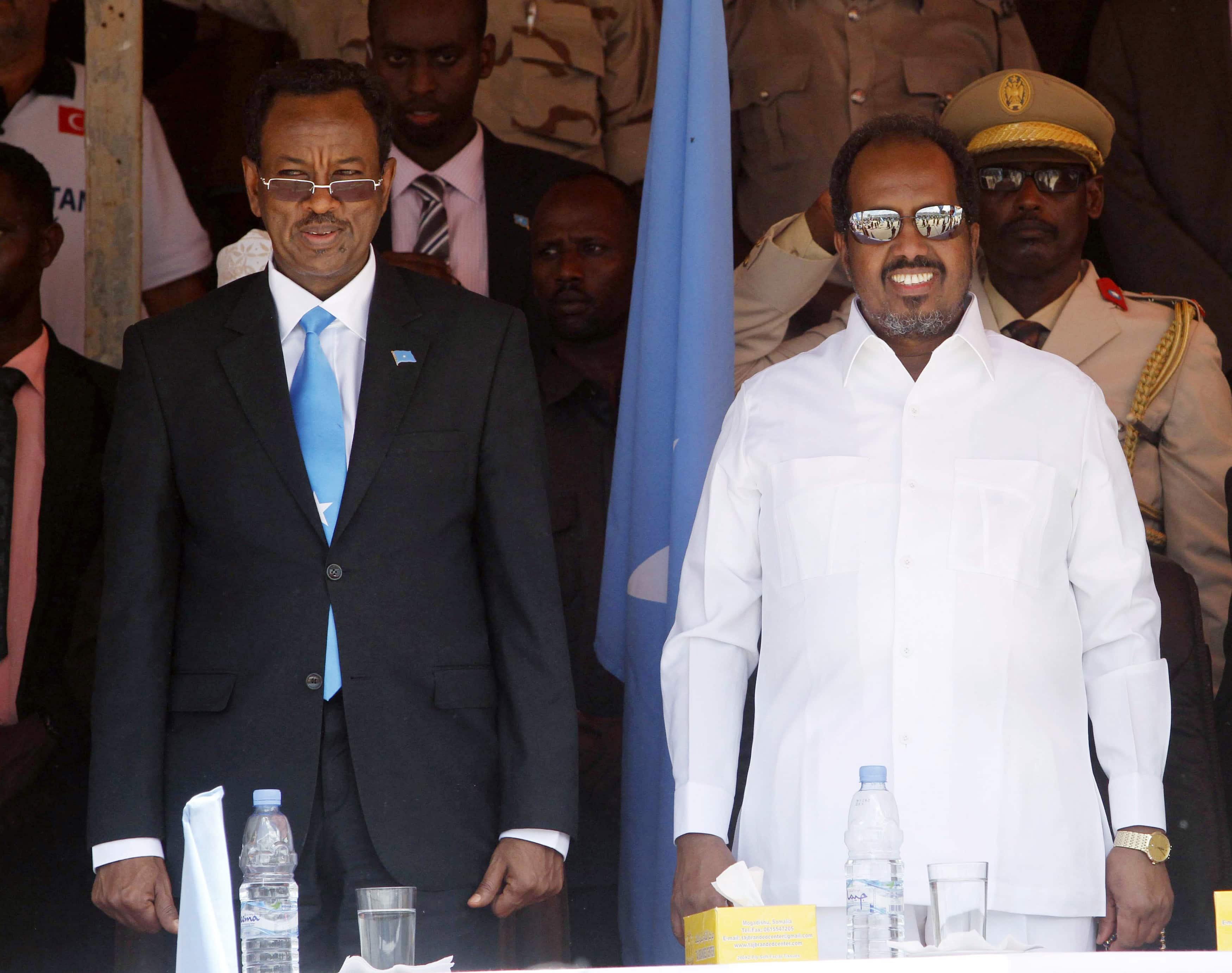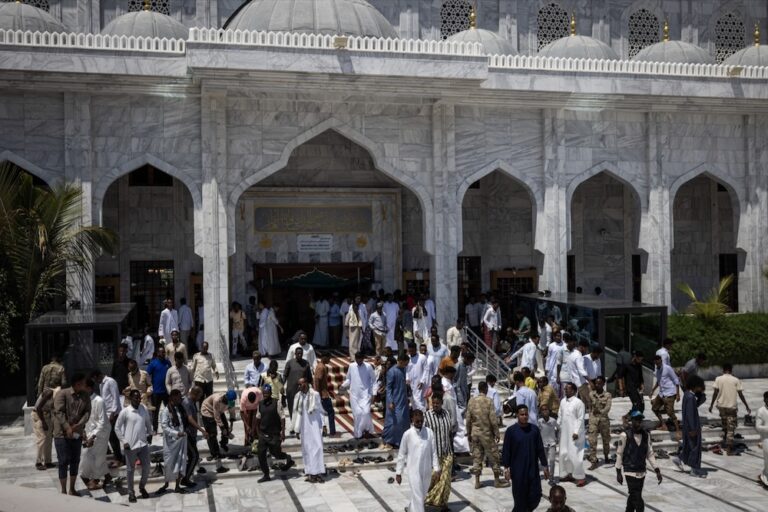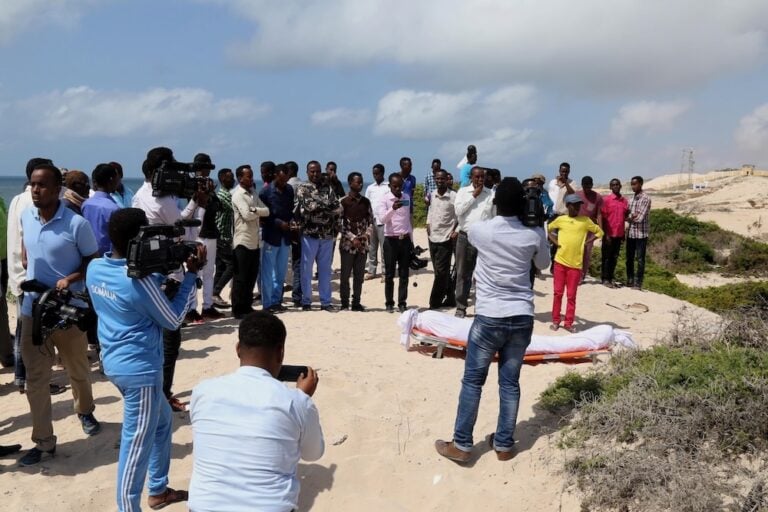IFEX members issued a joint call for amendments to a deeply-flawed draft media law in Somalia before it goes to parliament for approval in August.
The following is a joint letter signed by 35 IFEX members, and initiated by the National Union of Somali Journalists, calling on the Prime Minister of Somalia to order a review of the draft media law passed in July by the Council of Ministers. The law goes to parliament for approval in August:
His Excellency Abdi Farah Shirdon
Prime Minister of Federal Republic of Somalia
Office of the Prime Minister
Mogadishu
Somalia
Copy to:
H.E. President Hassan Sheikh Mohamud
Honourable Mohamed Osman Jawari
Speaker, Federal Parliament of Somalia
24 July 2013
Your Excellency,
We, the undersigned 35 members of IFEX, are writing to urge you not to send the current version of the draft media law to the federal parliament for approval, for we fear that it is deeply flawed and does not comply with international standards of freedom of expression.
We welcome the announcement you personally made on 18 July during a meeting with around 20 media representatives, in which you expressed your willingness for this draft to be further amended in order to protect and promote media freedom. We see this move as a bold and positive commitment from a Prime Minister who acts in favour of media freedom.
As you know, there was a strong reaction to this draft media law from the independent media. It is clear that the media community does not support this draft law, and their legitimate concerns need to be added to the draft before it is discussed by parliament.
The draft law regulates all media outlets – electronic and print – which runs counter to international standards on media freedom. It also gives broad powers to a proposed National Media Council, which would work under the auspices of the Ministry of Information and would not therefore be independent, particularly as the process of appointing members is a government-led and controlled activity, with the majority of its members to be appointed from the Ministry of Information and the parliament. Media owners are totally excluded from the proposed council’s membership. The draft legislation accordingly fails to promote press freedom nor does it mediate disputes objectively.
Furthermore, several provisions of this draft law are vague and lack clarity. The draft law leaves numerous key terms undefined such as “security”, “good culture” “public interest” and “national stability”, and it requires journalists to reveal their confidential sources and media houses to name unnamed reporters if they are called to do so in a court of law.
The draft law also seems to discriminate against journalists working for foreign media organisations. It makes it easy for foreign reporters and their organisations to lose their accreditation during investigations and judicial processes against them.
The draft law further specifies ethical rules that journalists must follow in practicing their profession. In established democracies, ethics of journalism must not be predetermined in media law or any other constitution. It is left for journalists to decide and only for journalists or self-regulating media bodies to set the rules of ethical conduct.
Adequate consultations on the law have yet to take place with media stakeholders. A meeting in February 2013 involved only some 17 media and telecommunication company representatives, while the majority of media outlets were not present. Even the media in Mogadishu was not broadly involved, let alone media in the entire country. The law was not shared with the media before the Council of Ministers was presented with the draft, which it passed on 11 July. Indeed, broader consultations are needed for such an important process considering that the country is composed of diverse regions and states.
The National Union of Somali Journalists (NUSOJ), a member of IFEX, fears that the draft law can be easily misused for political purposes and that it could contradict the principle of the separation of powers and of the checks and balances typical of true democracies.
Somali journalists and their media houses have suffered tremendously and many have been killed. They do not expect the new federal government to pass a repressive media law that curtails the freedom they paid for with such a heavy price.
To strengthen the voice of the media, we urge you not to send the law to parliament until you ensure the final version respects, protects and promotes press freedom, in line with Somalia’s national and international commitments.
Yours sincerely,



